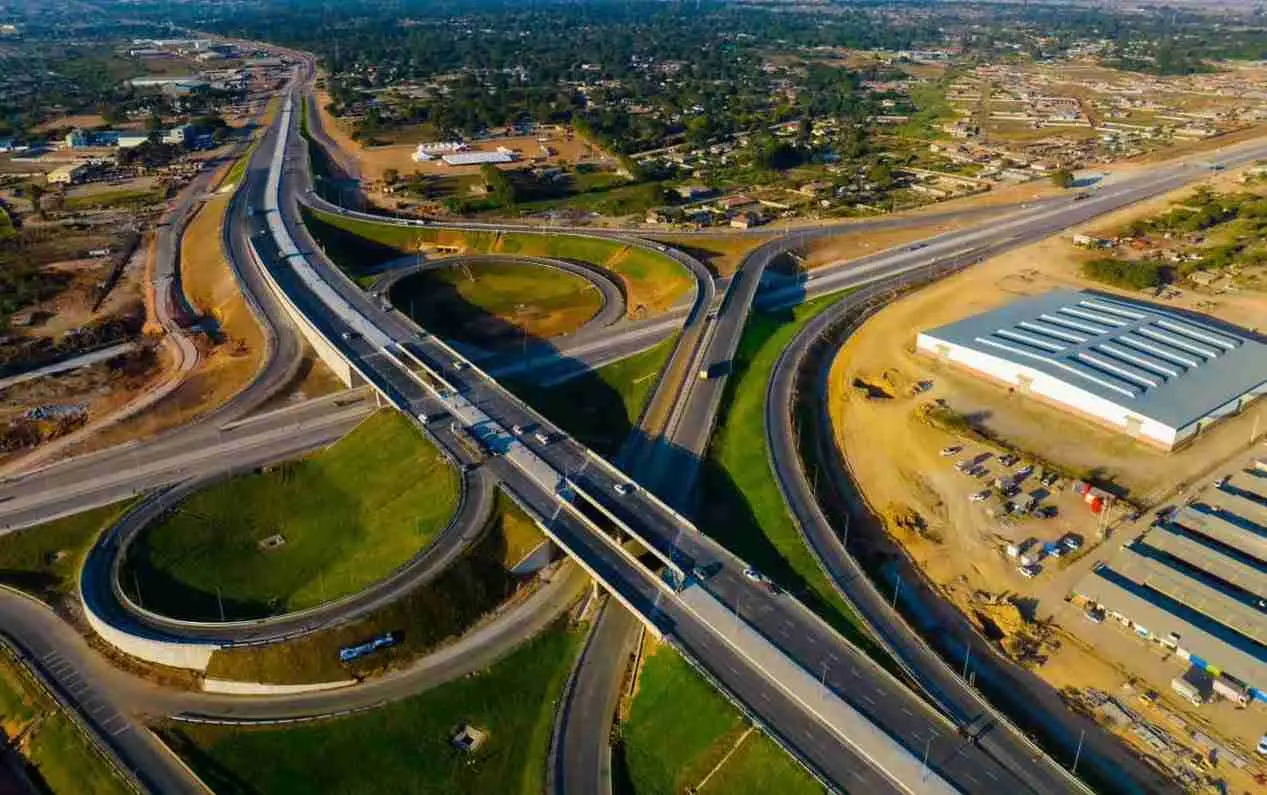By Costa Nkomo
The cost of constructing the recently commissioned Trabablas Interchange in Harare was beyond the US$88 million initially communicated and budgeted for, Treasury has revealed.
The Treasury confirmed in Parliament that the project cost a total of US$114 million – an increase of US$26 million.
When questions were raised about the project’s cost, the government was quick to attribute the increase to the relocation of families who had been settled close to the project site.
Experts have, however, drawn comparisons with regional markets such as South Africa and Botswana, where constructing a similar project would typically cost around US$45 million.
While many are still trying to make sense of the initial US$88 million figure, Finance Minister Professor Mthuli Ncube further shocked lawmakers by revealing during a Question and Answer session in Parliament on Wednesday that the project had actually consumed an additional US$26 million, not included in the original budget.
Emakhandeni-Luveve MP Decent Bajila raised the issue in Parliament, requesting that Ncube clarify the full cost of the Trabablas Interchange.
“I asked the Minister of Finance, Economic Development and Investment Promotion to brief the House on the total cost of the Trabablas Interchange Project and to clarify whether the funding source was a loan from the private sector or the International Monetary Fund’s (IMF’s) Special Drawing Rights facility,” Bajila said.
Responding, Ncube said: “The cost of Trabablas Interchange was driven by our initial loan arrangement of the order of US$88 million, which was provided by the Consortium of Contractors. In terms of what we used from the Special Drawing Rights, we were required to pay a deposit of US$26 million. So, we used US$26 million from the SDRs to pay that deposit and then the rest was structured as a loan from that US$88 million arrangement.”
Bajila followed up, asking whether the US$26 million was part of the US$88 million total, to which Ncube responded that it was not.
“The US$26 million is in addition, but it was a requirement for accessing the US$88 million that we pay that deposit to access that facility. We think that was a very good arrangement indeed because we have been able to complete the piece of infrastructure,” said Ncube.
Dangamvura Chikanga MP Prosper Mutseyami then pressed Ncube for an explanation on what had caused the additional US$26 million in project costs.
“May the Hon. Minister explain to the House as to what caused the additional US$26 million, bearing in mind that the US$88 million had been budgeted to cover the whole construction of the interchange,” he asked.
Ncube attributed the extra cost to the relocation of residents living near the construction site.
“The cost of relocating, for example, relocating some of the residents that we relocated to create space, for developing this piece of infrastructure. There were some unexpected escalations of that cost, which then pushed us towards increasing the budget by another US$26 million that I have referred to,” Ncube said.
Mutseyami was not satisfied and posed another follow-up question.
“Can you substantiate to the House as to how this supplementary US$26 million would just come about when the budget had already been sorted, then we have extra figures for the situation of adding US$26 million? How do you account that Hon. Minister?”
In response, Ncube said the cost overruns were unforeseen and occurred during the implementation of the project.
Kwekwe Mbizo MP Corban Madzivanyika also challenged Ncube, reminding him that the original Trabablas Interchange budget presented to and approved by Parliament did not include the additional US$26 million. He questioned Ncube’s authority to spend the extra funds without Parliamentary approval.
“Minister, you came and paid another additional US$26 million outside Parliament, where did you get that power to do such?” Madzivanyika queried.
However, Ncube insisted that, as Finance Minister, he is empowered to handle project budget overruns.
“One did not have to come back to Parliament to be able to exercise the powers that Parliament and the Executive have already awarded or extended to me as Minister of Finance,” he responded.
